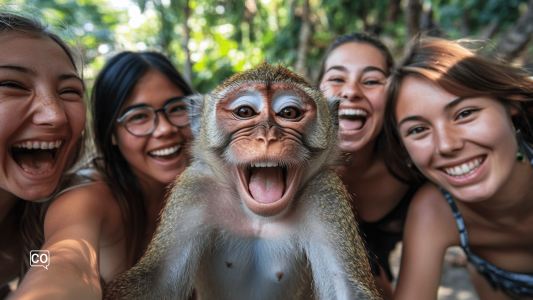En safari

Learning goals:
- Situation: Vocabulario sobre continentes y paisajes exóticos (Vocabulary about exotic continents and landscapes)
- Verb: Ver (to see) - Pretérito perfecto, indicativo (Present Perfect, indicative)
- Grammar: Los comparativos irregulares (Irregular Comparatives)
- Culture: El desierto de Tabernas: el Hollywood español (The Tabernas Desert: the Spanish Hollywood)
Learning module 2 (A2): Naturaleza y medio ambiente (Nature and environment)
Teaching guidelines +/- 60 minutes
Exercises
These exercises can be done together during conversation lessons or as homework.
Exercise 1: Find the words
Instruction: Find the words, mark them and make sentences with the words.
Show answers Show hintsHints
African , To move away , The desert , The vulture , The jungle , The owl
Answers
Score: 0/6
| La selva | (The jungle) |
| El buitre | (The vulture) |
| Alejarse | (To move away) |
| Africano | (African) |
| El búho | (The owl) |
| El desierto | (The desert) |
Exercise 2: Reorder sentences
Instruction: The words in these sentences have been shuffled! Sort them so that they make a valid sentence again and translate.
Show answers Show translationExercise 3: Translate and use in a sentence
Instruction: Translate and say the word out loud. Use the word in a sentence.
Show translation|
1.
El búho
|
(The owl) |
|
2.
Salvaje
|
(Wild) |
|
3.
Africano
|
(African) |
|
4.
El elefante
|
(The elephant) |
|
5.
La selva
|
(The jungle) |
|
6.
El buitre
|
(The vulture) |
|
7.
Alejarse
|
(To move away) |
|
8.
El águila
|
(The eagle) |
Exercise 4: Translate and make sentences
Instruction: Translate the words and phrases below and use it in a conversation or text.
Show answersExercise 5: Conjugación verbal
Instruction: Choose the correct word, read the sentence out loud and translate.
Show answers Show translationVer (Pretérito perfecto, indicativo)
1. Tú ... a los elefantes en la selva.
2. Yo ... a los águilas volando.
3. Ellos ... a muchos animales durante sus vacaciones.
4. Él ... a todos los animales salvajes.
5. Nosotros ... a un búho por la noche.
6. Vosotros ... dos buitres en el desierto.
Exercise 6: Irregular Comparatives
Instruction: Choose the correct word, read the sentence out loud and translate.
Show answers Show translationmenor, mayor, mejor, peor
1. Malo: El desierto es ... para los elefantes que la selva africana.
2. Malo: ¿Es el buitre salvaje ... en buscar comida que el águila?
3. Grande: El elefante es el ... animal de todos los animales de la selva.
4. Bueno: El águila ve ... que el buitre.
5. Bueno: La selva es ... para el águila que el desierto.
6. Malo: El águila es ... volando bajo que el búho.
7. Grande: El águila es ... que el búho.
8. Pequeño: El búho es ... que el águila, pero vuela muy bien de noche.
9. Pequeño: El búho africano es ..., pero más rápido que el elefante.
10. Bueno: La vida de los búhos africanos es ... en la selva que en el desierto.
Exercise 7: Translate and make sentences
Instruction: Translate the words and phrases below and use it in a conversation or text.
Show answers